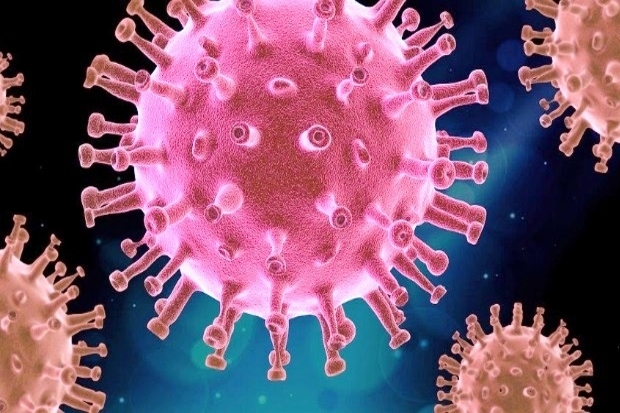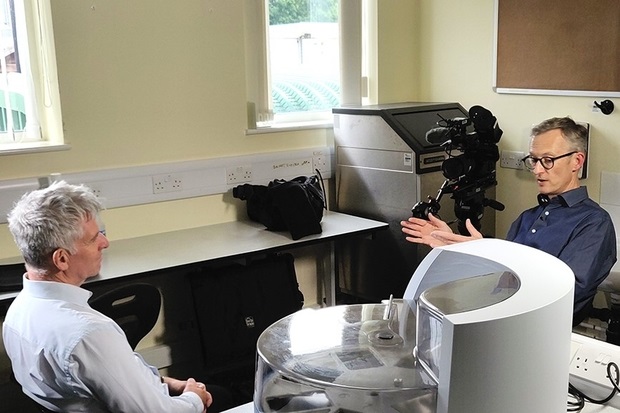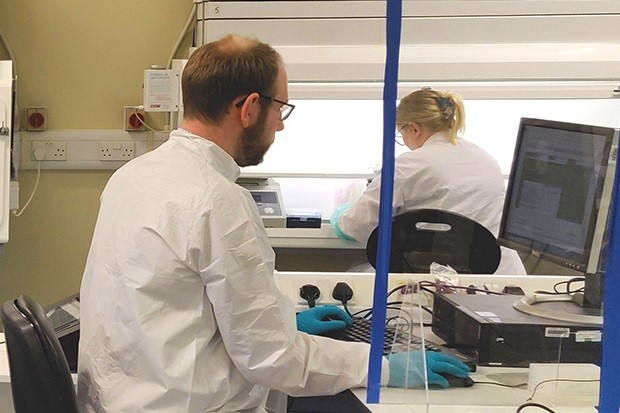
I would like to tell you about this exciting pilot study that the Animal and Plant Health Agency (APHA) has been working on with the University of Southampton. It is a community wide surveillance programme in the South of England, trialling an alternative testing approach to detect COVID-19 (caused by SARS-CoV-2 virus) infections in people, using saliva rather than swabs.
The ‘Safe & Certain’ pilot study is led by the University of Southampton, in partnership with APHA, Southampton City Council and the National Health Service (NHS). Professor Ian Brown, Acting Deputy Science Director, is leading the APHA Science Covid-19 testing programme, assisted by a group of scientists drawn from a range of APHA science departments.
The pilot started in June and lasted for six weeks in which time the project team worked closely together to develop and validate the proposed Loop-mediated isothermal amplification (LAMP) based detection method, in collaboration with OptiGene molecular diagnostics company and other science partners.
Who are we testing and how does APHA fit into the national effort of test, track and trace.
The LAMP test has been trialled on a substantial number of key workers and their families in the Southampton area, in the hope that this method of routine testing can reliably track SARS-CoV-2 infection. The primary aim of the project is to enable us identify the proportion of people infected with and potentially shedding the virus without showing any symptoms, including asymptomatic and pre-symptomatic, on a population scale.
The test results, which are available within 24 hours of sample receipt at APHA, are linked with the NHS Test and Trace system and people testing positive are contacted and advised to self-isolate whilst tracing their recent contacts. Those testing negative can continue to follow government guidelines in their daily activities and work.
If successful, this approach will pave the way for wider regular nationwide simplified rapid testing, helping to ensure safe easing of restrictions and preventing community transmission following spread of the virus. This way, we can contribute to safely restoring the social and economic activities within the cities and regions it is used, reducing COVID19 related pressure on NHS, while enabling people and society to regain their normal lives.

The APHA project team recently welcomed a BBC News team to film the pilot testing workflow undertaken in the laboratories at Weybridge and showcase our contribution to the ‘Safe and Certain’ project. The interview was featured on the BBC News on Friday 17 July. If you missed the feature, you can read in an article by Fergus Walsh on the BBC website.
APHA testing and validation for the development of the new LAMP protocol
The testing of saliva under this project enables detection of SARS-CoV-2 genetic material using a Loop-mediated isothermal amplification (LAMP) based detection technique that is much simpler, faster and cheaper compared to the standard real time Polymerase Chain Reaction (RT-PCR) method. The non-invasive saliva test allows easier testing of people of all ages and ensures that everyone in the household can be tested regardless of symptoms and on a regular basis.
The successful completion of the pilot study in APHA Weybridge laboratories has been pivotal in the research and development of the protocol as well as the validation of this new method. Initially two different teams were comparing the two different methods across the different kinds of samples and validating the results to ensure test suitability for wider application.
A huge effort has been made by the core team (too many to name individually!) who have worked tirelessly to achieve encouraging results despite numerous hurdles along the away and a strong example of virtual team working across the science directorate in APHA and with other science partners.
In total over 10,000 saliva samples were tested under the phase 1 pilot with an initial parallel testing of samples submitted by extraction and RT-PCR vs direct LAMP. The parallel testing gave confidence to move to direct LAMP testing alone and enabled streamlining of the workflow.
What are the benefits of this project?
COVID-19 testing to date has been challenged with national and international bottlenecks around the supply of materials for sampling (for example swabs) as well as the need for specific chemical reagents and equipment for molecular testing. Further, the correct swabbing procedure involves significant discomfort and as such ensuring a good quality swab submission is problematic where not undertaken by a health professional.
This pilot project has demonstrated that saliva can be utilised for rapid sampling of communities with enabling an at-home approach to COVID-19 sampling that entire households can undertake rapidly, without the need for bespoke sample tubes and sampling discomfort. The aim and scope for the entire project, if the second phase proves successful, is that citizens of the Southampton area will provide saliva samples from everyone in their household on a weekly basis with turnaround of results within 24-48 hours.
Participants find out as soon as possible if they or someone in their household has been infected with the virus or not. If their test is positive they will be able to take immediate action to prevent the spread of the disease, with additional help and support from the NHS. They will be quickly notified of the need to quarantine along with members of their household and rapid tracing of their recent close contacts would then take place through the newly launched national system. If they test negative, reassurance will be provided via this regular testing that they won’t be passing the virus on at work or during daily activities.
Regular testing means identifying new cases of the virus earlier, before symptoms develop and spread has occurred. By stopping the spread of the virus we can stay safer and can get back to normal life quicker whilst allowing our NHS to focus on non-COVID care.
However, it is worth emphasising that such testing does not replace the need for social distancing and other measures in place to diminish the spread of COVID-19. For a universal testing programme to be effective, social distancing, hand washing and fabric face coverings in public places will all continue to be vitally important, especially for the overwhelming majority of people whose weekly test will be negative.
Working in the Lab

“There was always a good spirit in the lab. We were not only contributing to the national effort in overcoming problems that we were all facing as a result of COVID-19, but there was a really strong sense of achievement. The staff, now experienced in this process, were having fun with it and whilst still working to a safe and high standard, a little competitive element was introduced. One team working in the cabinets could process a rack of samples ready for Direct RT-LAMP in 41 minutes!
The messages of support and encouragement from our project leaders were extremely well received by all. They ensured that all our demands regarding requirements for testing were met and went above and beyond to ensure that our well-being was well looked after.
The last day of testing finally came, it was a Saturday and the plan was to stop off and get some supplies for a final end of testing socially distanced celebration in the park. Although a bit overcast, we weren’t going to let the weather spoil our last day celebration, and we celebrated the best we could. We were all so tired but still managed to smile and enjoy the simple pleasure of sitting down, eating and enjoying each other’s company as a group, maybe for the last time as we would return to our respective departments and back to business as usual.”
Saira Cawthraw (Molecular Biologist, APHA Lab Services)
What happens after the initial six-week pilot research and development phase?
The initial pilot demonstrated great utility in the saliva based approach. However, the laboratory element of the testing involved multiple stages of processing before the sample was in a suitable form for testing using LAMP technologies.
In the next development phase underway, APHA are continuing to work with the team at the University of Southampton, OptiGene and the Basingstoke NHS trust, to refine the procedure so that submitted samples can be tested using LAMP with minimal requirements for sample processing.
The actual LAMP test requires the sample to be run for 20 minutes, we aim over the coming weeks to cut the sample processing time down to as short a period as possible to ensure optimal rapidity of testing. Should this second phase of development be successful then the approach may be adopted more widely as a community testing strategy against SARS-CoV-2.
In addition, we have now started to receive samples for phase 2. This is a programme across Southampton to track infection in a group of recruited schools over time, and importantly to monitor students as they start or return to university life.
Further information:
Look out for future blogs on the range of COVID-19 projects that APHA is involved in, including progress of the phase 2 study. Subscribe for updates straight to your inbox so you don’t miss them.
You may be interested in reading about some of our previous COVID-19 blogs. These can be found here.

Recent Comments